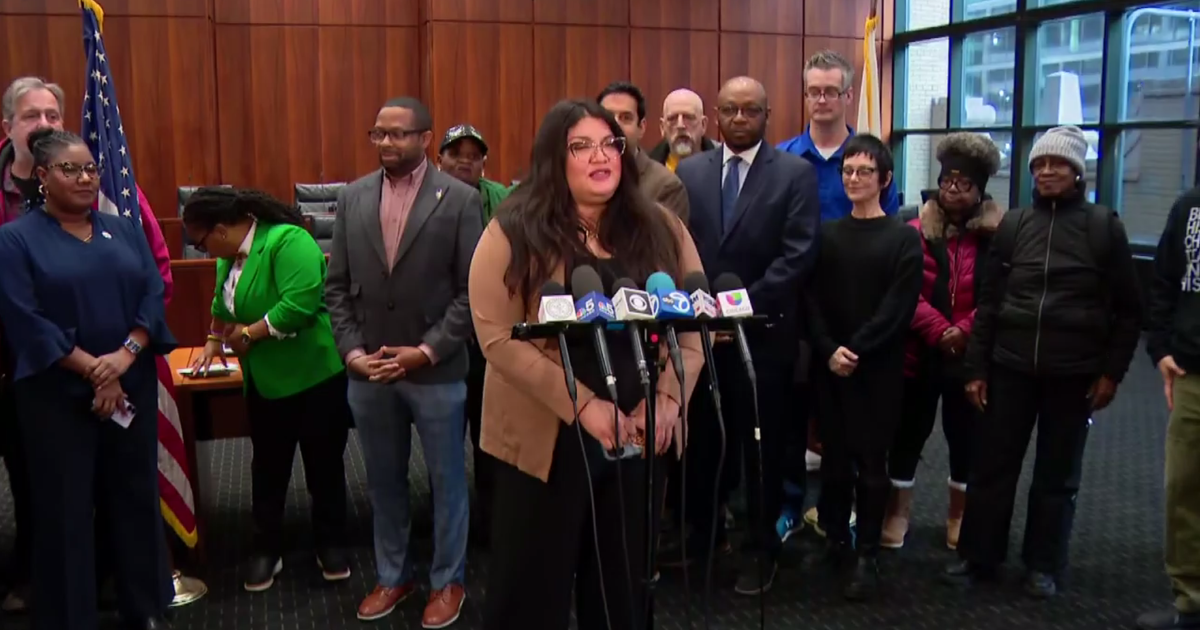Walker Makes Case For Education Reforms Nationwide
MADISON, Wis. (AP) — Scott Walker touted changes he's made to K-12 education as governor in Wisconsin in a newspaper column published Wednesday, saying there's "no reason" what he's done in the state can't be matched nationwide.
Walker, expected to announce a run for the Republican presidential nomination within weeks, inflamed teachers across Wisconsin four years ago when he pushed for a law that took away their collective bargaining rights, while also forcing them to pay more for health and pension benefits, as part of an effort to balance the state budget.
"Now, more than ever, we need to push big, bold reforms to improve our schools," Walker wrote Wednesday in a column published by The Des Moines Register in Iowa. "If we can do it in Wisconsin, there is no reason we can't push positive education reforms across the country."
Walker's education policies have included expanding school choice efforts and cutting funding for public schools. His call to take such efforts nationwide elicited anger from his opponents in Wisconsin, who also vehemently opposed his efforts on union rights.
"When it comes to the damage Gov. Walker has inflicted on Wisconsin students, it's hard to come up with a short list," said Betsy Kippers, president of the statewide teachers union, the Wisconsin Education Association Council.
Walker's first state budget cut funding for public schools by $1.2 billion, the largest reduction in state history. This year, Walker proposed cutting public school funding by $127 million in the first year of a two-year budget, a move rejected by the Legislature's Republican-controlled budget committee.
Walker has also successfully expanded Wisconsin's private school voucher program statewide after it debuted in Milwaukee. Walker's pending budget proposal would gradually remove the program's enrollment caps and use tax dollars currently provided to public schools to pay for it.
Walker has argued the state, and schools specifically, are better off under the collective bargaining law, which affected nearly all state employees and led to his recall election in 2012. He renewed that argument in Wednesday's column, saying he fixed a "broken" system.
"Today, the requirements for seniority and tenure are gone," Walker said. "Schools can hire based on merit and pay based on performance. That means they can keep the best and the brightest in the classroom."
Walker also pointed to higher graduation rates, improved third-grade reading scores and the fact that Wisconsin's high school student ACT scores are the country's second best.
He did not note that Wisconsin's graduation rates were increasing for years before he took office and the recent growth is not as strong as the national average. Wisconsin's ACT scores were also consistently among the nation's best prior to his election.
Walker also wrote that he opposes the Common Core academic standards. When he took office in 2011, Walker called for creating tests that were tied to the standards. He first objected to the standards during his re-election campaign last year.
His pending budget reiterates that school districts can't be forced to adopt the standards, a protection they already have under current state law.
In the column, Walker also mentions Megan Sampson, a teacher who was laid off after being named the outstanding first-year teacher by the Wisconsin Council of Teachers of English in 2010. Collective bargaining agreements in place at the time, since eliminated, protected those with more seniority from losing their jobs.
Walker often tells the story, and Sampson has repeatedly asked him to stop. She did so again Wednesday.
"I do not enjoy being associated with Walker's political campaign," Sampson said.
(© Copyright 2015 The Associated Press. All Rights Reserved. This material may not be published, broadcast, rewritten or redistributed.)







